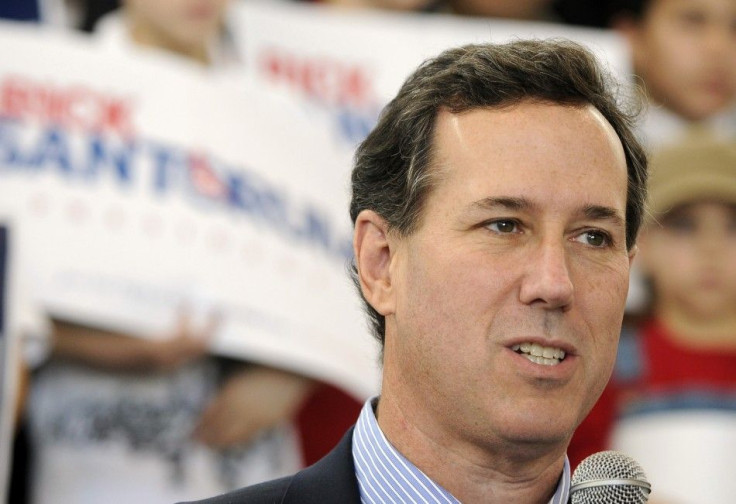Alabama, Mississippi, and Romney's Conservative Enthusiasm Gap: Why It Doesn't Matter

The outcome of the Mississippi and Alabama primaries affirms a central narrative of the Republican race: Mitt Romney has a conservative problem.
Two more primary losses for Mitt Romney in bedrock Republican states have occasioned the typical questions about the frontrunner's evident weaknesses, particularly his continuing inability to win over the staunchly conservative GOP base that has forsaken him for Newt Gingrich or Rick Santorum in South Carolina, in Tennessee and Oklahoma, and now in Mississippi and Alabama.
After claiming two more victories on Tuesday night, Santorum again emphasized his status as the conservative alternative to Romney, a role he seized from Gingrich's faltering campaign.
We did it again, Santorum told reporters in Louisiana, another southern Republican stronghold with a looming primary. The time is now for conservatives to pull together.
2012 GOP Nomination Process Displays Familiar Pattern
Exit polls have established a reliable pattern: Romney fares well among voters who earn more money, fall closer to the middle part of the ideological spectrum and value defeating President Barack Obama more than partisan purity. Ardent Tea Party supporters and voters who declare themselves to be very conservative consistently choose one of the other guys.
Those results help sustain worries about Romney's failure to generate the type of enthusiasm that Gingrich and Santorum inspire with their fiery rhetoric and red meat appeals to voters. In such a critical election, naysayers wonder, shouldn't we be nominating someone who can excite the base?
But the reality is that Romney's southern struggles shouldn't be too big of a problem if Romney's inexorable accumulation of delegates gives him the nomination, as seems likely. That's because those far-right voters are not about to vote for Obama no matter who his opponent is. For most, the need to unseat Obama is the overriding imperative.
I think that among very conservative and Tea Party voters it's probably not much of a concern, said Marc Meredith, a professor of political science at the University of Pennsylvania. Those people, especially those who are coming to vote in a Republican primary are likely to vote for a Republican no matter who the nominee is.
Will Very Conservatve Voters Turn Out For Romney?
The real question is whether those voters will show up. Enthusiasm gap notwithstanding, Romney would win more conservative states like South Carolina and Alabama. But traditional battleground states like Ohio and Pennsylvania, in addition to typically red states like North Carolina and New Mexico that Obama plans to contest, will prove a more crucial test.
That's where you've got to see where the archconservatives who are voting for Santorum and someone else and whether they will be enthusiastic enough to vote for him or stay home or not, said James Thurber, director of the Center for Congressional and Presidential Studies at American University. If he begins to moderate, which he has to do to win in these battleground states, he may alienate them.
Romney's apparent inability to inspire voters will ripple beyond the party faithful. More crucially, it could spell trouble for galvanizing get-out-the-vote efforts.
Romney's worry has to be that politically active conservatives will not advocate for him as strongly as they have for Republican candidates in the past, John Barry Ryan, a professor of politics at Florida State University, wrote in an email. So, while Romney will get their votes, [he] won't get the votes of these people's friends.
The tenor of Romney's campaign could also be a factor. Unlike in 2008, when Obama galvanized voters with a transcendent message of change, the Republican primary so far has been characterized by an explosion in negative campaign advertisements and relentless attacks on Obama.
My guess is that anger against Democrats and Obama will get Romney some of the bigger contributor types who would rather not support him, John Aldrich, a professor of political science at Duke University, wrote in an email. In terms of turnout (and small contributions), it is rarer for negative opinion of the opponent to motivate them to turnout or contribute in small ways than it is for positive enthusiasm to do so.
--
© Copyright IBTimes 2024. All rights reserved.





















